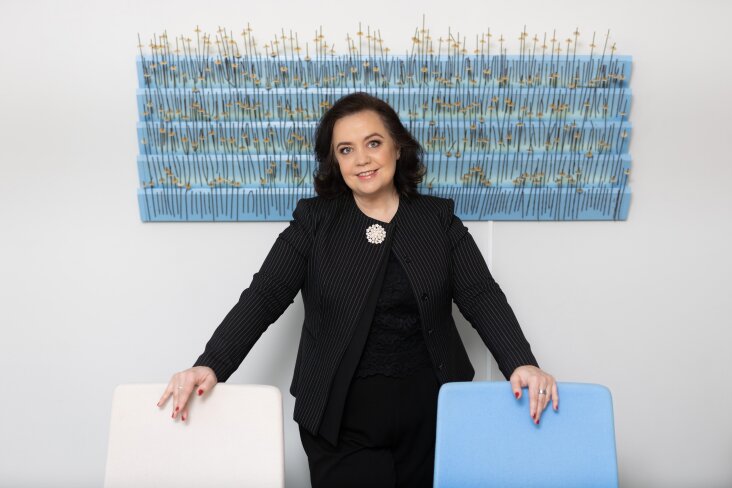Lithuanian green start-ups: the drive for breakthroughs and 9.5 million euros in funding

A smooth transition to a climate-neutral economy is already identified as one of the biggest challenges for the Lithuanian economy, with GreenTech start-ups being hailed as key players to initiate this necessary change. Viktorija Trimbel, head of Coinvest Capital, a subsidiary of INVEGA, discusses the market for these start-ups, their potential, and the trends in investing in sustainable, young companies.
Lithuania's startup ecosystem is already a significant driver of the country's economy. Last year, Lithuanian start-ups attracted a total of EUR 272 million.
According to V. Trimbel, some of the most important advantages of Lithuania as an investment environment include the optimal size of the country, attractive conditions for business creation, and a closely cooperating and focused ecosystem. These factors can also benefit the development of green start-ups.
"First and foremost, the country's energy independence is critical to its sovereignty. This means that the main players in the sector are led by professional managers and there is a sense of focus and a desire to make a breakthrough. Ignitis Group, for example, can be seen as a large infrastructure partner, open to innovation, which could use start-ups and innovators to develop modern solutions," says the CEO of Coinvest Capital.
We also have many bright minds working in the best universities abroad, and their innovations could be commercialized by setting up companies in Lithuania, attracting both our investments and others'. A great example of this is Cambridge Phenotyping, a start-up founded by Lithuanian neuroscientists and co-funded by our foundation together with private investors and business angels.
Examples abound both in Lithuania and abroad
V. Trimbel suggests that creating a sandbox would also play an important role in helping green start-ups flourish.
"Our small market size, the proximity of decision-makers, and a talented team with vision and ambition are what it takes to deliver a good result. You don't have to look far—just look at the Lithuanian FinTech sector and adopt the best practices," says the CEO of Coinvest Capital.
"We also have many bright minds working in the best universities abroad, and their innovations could be commercialized by setting up companies in Lithuania, attracting both our investments and others'. A great example of this is Cambridge Phenotyping, a start-up founded by Lithuanian neuroscientists and co-funded by our foundation together with private investors and business angels."
Constantly seeking fresh investments
Speaking about trends in green start-up investments, V. Trimbel notes that investors are increasingly focusing on sustainability.
"Venture capital funds tend to invest with at least a five-year perspective. This means that the sustainability of the investee company must be a concern for any entrepreneur or investor with a long-term strategy. Recently, we have noticed the emergence of even more funds that prioritize sustainability. One of these is Contrarian Ventures, which is among the private investors accredited by our fund," she says.
Coinvest Capital is also increasingly focusing on ClimateTech and GreenTech start-ups.
"I would single out Inbalance Grid, a particularly successful growth company in our portfolio, an electromobility start-up. We are always on the lookout for new green start-ups. At the moment, we still have around EUR 9.5 million of free capital, and we expect to have more soon to invest in them," says V. Trimbel.
According to her, the Coinvest Capital fund always invests with partners, so some companies are brought in by other funds or business angels who bring important industry expertise with them.
"We apply the usual due diligence procedures when investing, using experts and co-investment partners who bring not only financial resources but also a network of professional contacts and experience that we complement with our own," says V. Trimbel.

